Adopted Into God's One Family - A Sermon for the First Sunday After Christmas (December 31, 2023)12/30/2023 Scripture Readings: Isaiah 61:10–62:3 | Psalm 148 | Galatians 4:4–7 | Luke 2:22–40
“But when the fullness of time had come, God sent his Son, born of a woman, born under the law, in order to redeem those who were under the law, so that we might receive adoption as children.” (Galatians 4:4-7). What comes to mind when you hear the word: “family”? Maybe you think of the images of your own relatives… partners, children, parents, siblings, and so on? And the joy-filled memories of times you felt surrounded by love and fellowship? Maybe you think of the pain that comes from feeling cut off from others… especially those you were once close to? Or maybe, like many people today, the idea of “family” feels like a mix of all this at once: heartache and hope, longing and belonging… chaos as well as communion? The truth is, families are complicated blessings: A good gift from God to be sure, but one which brings along with it all sorts of challenges… and which requires all involved to grow into, and to nurture, to bear good fruit. Now we know there are many reasons this time of year for us to be thinking about family. But we do so today especially because the first Sunday after Christmas is when the Church celebrates the Feast of the Holy Family: a day commemorating the shared life of Mary, Joseph, and Jesus, which began in Bethlehem all those long years ago. We remember that our Saviour didn’t just drop down from heaven, but was lovingly cared for and raised in a humble human community… with all it’s joys and challenges. We remember that the Word of God who spoke the whole Universe into being also listened and learned… was protected and provided for… was comforted and embraced by the trembling hands of a first-time mother, and an adopted father. Today we remember and rejoice that Jesus, the Lord of Glory chose a completely unlikely… far-from ideal family to share in… in order to adopt all of us messy families into His own… that is, the Church: the One, Holy, Catholic, and Apostolic community of Jesus. Church communities are often called a family. And sometimes this can be meant quite literally! I myself grew up in a rural Church, surrounded by four living generations of relatives, and which had been founded by my ancestors going even further back. Many Churches still have these kind of deep roots, arising from tight-knit neighbourhoods. But on the other hand, with many Churches that’s not the case at all: communities of people who have had no real connection before. The early Christian communities were of course a mix of both. Many churches began when a family, or household would receive the Gospel, and commit themselves to Jesus. And in time, when they would then share the Good News with their neighbours, some of them would believe as well, and begin to worship with them. Especially in small towns, these were all probably people they already knew quite well. But there was another astonishing trend that took place even in the earliest days of the Church: people from completely different backgrounds… classes, cultures, and social spheres, who would NEVER have had anything to do with each other before, began to believe the Good News of Jesus… and to worship the Living God together, and even be baptized together into God’s new family. This may not seem all that strange to us today, but it would prove to be a wonderful, world-changing scandal for the Church: slaves and their masters, women and men, Jews, and Greeks, and others from all over the world were starting to be treated as equals… as brothers and sisters before God. Not just rubbing shoulders, but learning to actually share their lives, and to love each other. Of course, it wasn’t easy. And it went against so many of their natural and cultural inclinations. But it did become reality: humans like us learning to live as God’s family, not just in heaven, but right here on earth. But even this gift of the new Christian family was a complicated blessing. Many found joy in the Good News of Jesus, and brought their old friends and family with them into the Church. Many others would find themselves rejected by their loved ones because of their faith in Jesus… and would have to endure great pain and heartache, as Christ Himself experienced, and warned us would be the case. But this new community wouldn’t be dependent on our natural human bonds… our shared bloodlines, our social classes, our ethnicity, culture, traditions, or interests. Across all these barriers, we are bound together now by the Good News of Jesus Christ, and what He has done! And all of humanity can now be embraced and adopted into God’s family. Right before our second reading today from the letter to the Galatians, St. Paul makes this startling claim that reminds us all of what it means to be in God’s family: Galatians 3:26-29, “for in Christ Jesus you are all children of God through faith. As many of you as were baptized into Christ have clothed yourselves with Christ. There is no longer Jew or Greek, there is no longer slave or free, there is no longer male and female; for all of you are one in Christ Jesus. And if you belong to Christ, then you are Abraham’s offspring, heirs according to the promise. In Christ. Trusting in Christ. Baptized into Christ. Clothed with Christ. One in Christ. Belonging to Christ. Nothing else can get us in, or keep us out, of God’s family. And St. Paul goes on: Chapter 4:4-7, “when the fullness of time had come, God sent his Son, born of a woman, born under the law, in order to redeem those who were under the law, so that we might receive adoption as children. And because you are children, God has sent the Spirit of his Son into our hearts, crying, “Abba! Father!” So you are no longer a slave but a child, and if a child then also an heir, through God.” Because of Christ Jesus, and what He has done, we can be adopted into God’s family… as full members, as heirs along with Jesus our Lord of God’s eternal kingdom. No matter where we come from, no matter how many mistakes we have made, or how hurt we have been by our world, because of Jesus Christ we can become true children of God, filled with His Holy Spirit, and sharing in the everlasting love of His Heavenly Father. This is what it means to be a part of the One, Holy, Catholic, and Apostolic Church… this strange, messy, and complicated, but still blessed community of Jesus Christ here on earth. But as we know, the Living God doesn’t deal with ideals… but with our broken realities… in His mercy and love, making all things new. After all, the original Holy Family itself was far from ideal: Mary was a nobody, graciously chosen to receive a miracle… to conceive and give birth to God’s Son… but that blessed gift would bring all sorts of unlooked for complications with it. And Joseph would have walked away, were it not for a visit from the angel Gabriel in a dream… convincing him to put aside his suspicions and fears, and keep their family together. And Jesus Christ Himself set aside His eternal glory to take on our humble humanity, all in order to reconcile sinners like us to God. The Holy Family was complicated… but the Living God brought them together to bring about through them far more than Mary and Joseph could have imagined. And from the three of them would come the one worldwide family of God. We catch a glimpse of this along with them in our Gospel reading from Luke Chapter 2, when out of the blue they are given the prophecies of Simeon and Anna in the Temple… blessed and challenged by two elders led by God to embrace this young family, and share the Lord’s word with them: In Luke 2:29–32, holding the baby Jesus, Simeon says “Master, now you are dismissing your servant in peace, according to your word; for my eyes have seen your salvation, which you have prepared in the presence of all peoples, a light for revelation to the Gentiles and for glory to your people Israel.” In Christ, Simeon saw God’s salvation… for Israel, and all the nations… fulfilling God’s promise to Abraham, that through his descendant, “all the families of the earth shall be blessed.” (Genesis 12:3). And over the centuries since, God’s family has changed a lot. This little family… Mary, Joseph, and God’s Son, Jesus, would grow to become a truly worldwide community. Stretching not only across the Roman Empire, but across the whole earth. Sometimes we have done a good job of staying true to our calling, and our beginnings… of growing together as a community bound to each other by God’s holy love, offered to absolutely everyone through Jesus Christ His Son. And sometimes, we have failed pretty badly: becoming caught up in the old ways of the world… turning our hearts away from those who are not like us, cutting off those who come from a different class, a different culture… or who have different politics… forgetting that the Church, the family of God is so much bigger than we are, based on the Good News of Jesus, God’s Son, and what He Himself has done to adopted us all. And so today, with a new year on the horizon, one question I’d like to challenge us to reflect on is this: how can we here in Gondola Point better embody God’s One, Holy Family? How can we be Living Faith, Growing Love, and Sharing Hope here together in ways that stay true to the Good News of our adoption by God in Jesus Christ? Maybe we’re being called to nurture and grow in our existing relationships inside our Parish community… gathering together as brothers and sisters for worship, fellowship, and service? Maybe we also need to reach out beyond our own circles to embrace those we don’t really know yet: welcoming visitors… building connections with our Christian brothers and sisters from other Churches… including those from our neighbouring Anglican Parishes here in the Valley? Maybe we need to reflect on, and remember that the reason we belong to the Church at all, is not because of how good we may be, or how long our ancestors have lived here, or anything other than the Good News of Jesus Christ and what He has done for us… helping us start to see and treat everyone around us as those that the Living God longs to adopt as well. In Christ, God has opened the door for everyone to become our adopted siblings… to share in the complicated but world-changing blessings that come with being the children of God. And by His grace, may we grow into and nurture the gift of God’s Family for all here in Gondola Point. Amen.
0 Comments
Our service of Morning Prayer, Bulletin, and Sermon for the First Sunday after Christmas can be found here: And our Songs for this week can be found here: Scripture Readings: Isaiah 52:7–10 | Psalm 98 | Hebrews 1:1–12 | John 1:1–14
“And the Word became flesh and lived among us, and we have seen his glory, the glory as of a father’s only son, full of grace and truth.” (John 1:14). Today we celebrate the truth of the story of Christmas… a message we have likely heard many times before: the story of the Living God taking on our humanity… born of the Virgin Mary… welcomed into the world, not by the high and mighty, in some imperial palace, but by humble farm hands… lowly shepherds huddled in a stable. We know this story, which stirs up in us many memories of Christmases past. It’s a story wrapped up with hope, peace, joy, and love… and which holds a special place in our hearts, which is one of the reasons why we keep returning to it year after year. But we know many other stories too… stories that the world around us is eager to tell. Stories of anxiety and despair. Stories of bitter divisions and war. Stories of sorrow, and drudgery. Stories of hatred and fear. These are the stories so many are living by. The stories we’re all too often drawn into ourselves. These are the words on so many tongues, used to describe our world’s story… where we are headed. But we know that there is another Word that will have the final say… a Word full of grace and truth. The Almighty Word that spoke all Creation into being… causing the cosmos to become a place of light and life, where once was only darkness. The Divine Word that has always been, and will endure always, without end. The Glorious Word that shines out, and even if no one sees or receives it… this Word’s brilliance will never fade. The Word of God that took on flesh to dwell with us: our Saviour, Jesus Christ. He is born. And He faced our frailty, our dangers, our sufferings… giving us hope. He is born. And He laid down His life for us at the cross… giving us peace. He is born. And He rose again from the dead… giving us joy. He is born. And He has bound us to the Living God forever… giving us love. He is born. Today, Christ Jesus the Word of God gives us the gift of Himself. And may this Word dwell with us always… filling our hearts and minds, despite the dark words still echoing all around us… filling our lives with the hope, and peace, and joy, and love that only He can give… and may this Word take on our flesh, speaking in our words and acting in our deeds… and making His grace and truth known through all that we do… turning us His people into His gift to bring God’s New Life to the world. May the Word of God, Jesus Christ, dwell with us this Christmas, and always. And may we receive Him, and believing in Him, become God’s true children, full of His grace and truth… always. Merry Christmas, in Jesus’ name. Amen. Scripture Readings: 2 Samuel 7:1–11, 16 | Luke 1:46–55 | Romans 16:25–27 | Luke 1:26–38
“Here am I, the servant of the Lord; let it be with me according to your word” (Luke 1:38). This morning we celebrate both the beginning and end of the fourth week of Advent… what a short week! I know they say time flies when you’re having fun, but in my opinion, cramming a whole week into less than 24 hours is a bit much! But regardless of how long or short we may want Advent to be, this evening it all comes to an end as we celebrate Christmas Eve, when Mary gave birth to the Son of God, Jesus the Saviour of our world. And though it may just last this morning, the fourth week of Advent calls us to contemplate something central… something essential to the story of Christmas, and for that matter, to the whole story of God: theme of Love – connection… communion… binding hearts and lives together as one. As we know, Love is often talked about in our society in a one-sided way… we say love to speak of our longing… our desires… our appreciation for something or someone. In this light, love looks like little more than a feeling or personal motivation. But there are of course other ways of thinking about love… like seeing it as a mutual bond… a commitment to the communion between persons… a community… in which all involved share in the blessing… being built up together, trusting one another even as we face the unknown. This is the kind of love that Advent invites us to reflect on… a love best expressed not by seeking out that which one person desires for themselves… but by offering themself to their beloved, trusting them to be faithful. This is the love that we encounter in Scripture… and which is at the heart of Advent, and Christmas… God’s self-giving love. That said, our first reading this morning from second Samuel might seem a strange place to begin reflecting on self-giving love… with all its talk about temples. But in the imaginations of the ancient world, including Israel and their neighbours, temples were the places where heaven and earth could meet… where the divine and mortal spaces overlapped, so to speak, and communion between them could be achieved. Temples were also the tangible places where one’s devotion were visibly put into practice. The focal points for communities to display their piety: It was where offerings were given to show gratitude. And sacrifices were made to seek forgiveness. Sacred places set apart to renew and restore the relationships between humans and the divine. And while temples were common place all over the Ancient Near East, before the days of King David, Israel did not have a temple of their own. At Mt. Sinai, the Living God had promised to be with His people, and graciously made a covenant relationship with them, akin to a marriage… a sacred bond. He would be their God, and they would be His people… and God’s own faithfulness and love would be the foundation for their life together. And as a tangible sign of God’s ongoing presence with them, wherever they would go, God had them construct the Tabernacle… a sacred movable tent… where the Ark of the Covenant would reside… where gifts and sacrifices could be offered, and where God could meet with His people… and where the people could come close to their LORD… experiencing up close His forgiveness, His mercy, His grace, and His faithful love. And for centuries, God’s people in all of their wanderings had worshiped God in this mobile tent… as the One not bound to one place, but who dwelt in the midst of the community of His people. But after his rise to power, King David longed to establish a more permanent residence for the LORD of all. A grand house for his God… a Temple. Was this intended as an act of love? An expression of gratitude for all God had done for him… raising him up from his lowly and humble beginnings as a shepherd, to be the king of Israel? Whatever his intentions, as it turns out David’s desire to show his devotion to the Living God is completely outdone by God’s own devotion to him… promising to give him a great gift, not of a sacred building, but of a dynasty… a family destined to be drawn into God’s everlasting plan of salvation. 2 Samuel 7:11-16, “Moreover the Lord declares to you that the Lord will make you a house. When your days are fulfilled and you lie down with your ancestors, I will raise up your offspring after you, who shall come forth from your body, and I will establish his kingdom. He shall build a house for my name, and I will establish the throne of his kingdom forever. I will be a father to him, and he shall be a son to me. When he commits iniquity, I will punish him with a rod such as mortals use, with blows inflicted by human beings. But I will not take my steadfast love from him, as I took it from Saul, whom I put away from before you. Your house and your kingdom shall be made sure forever before me; your throne shall be established forever.” God would build from David a chosen King who would reign forever… and would be in true communion with the LORD always… as father and son they would be… and this chosen king would build a true house for God’s name… an everlasting place where heaven and earth truly meet… where all can encounter God’s steadfast and faithful love. And though in time, David’s heir, Solomon, would indeed build a grand temple of stone in Jerusalem, where Israel would focus their worship of the Living God, that meeting place would not last forever… and would serve as a signpost pointing to the true place where heaven and earth would become one… the temple of the body of this promised offspring of David. What a gift God gave David. But he would have to trust God and take Him at His word. David would never live to see the fulfillment of this promise, and so many questions would be left unanswered. When would this promised one come? What would he do when he finally arrived? How would God bring all of this about? Questions that would have to wait until that first Christmas. And as we heard today, God’s promise would all come about through the body of Mary… a teenage bride to be, who to the world seemed like a lowly nobody… and who, like David before her, was graciously favoured by God and lifted up. And through Mary, the Living God, the Creator of the cosmos would take on flesh and be born among us. In Mary’s womb, the Son of God became the Son of Man, and Heaven and Earth became one… in Him. The Anglican bishop and scholar, N.T. Wright puts it well when he says that: “Mary becomes the temporary dwelling-place of the living God: the presence of the Holy Spirit, and the ‘overshadowing’ of the Most High, both evoke the temple-idea. This passage struggles to say something for which words hardly exist: that in Mary’s womb temple and king came together once and for all, that the scriptures came true in ways never imagined, and that God found at last the house, neither tent nor temple but flesh and blood, that would most truly and fully express his royal, self-giving love.”[1] What a gift God gave to Mary… but one that opens up all sorts of questions: How can this be? What will this promised child be like? What will He do? What am I supposed to do? But even with so many questions, and so much left unknown, we know Mary’s response: “Here am I, the servant of the Lord; let it be with me according to your word” (Luke 1:38). She believes, and opens her heart to the divine message of God’s gracious gift of love… to her, and through her, to the world. Mary chooses to trust God, and the world has never been the same since. These stories of David and Mary, along with all of the Holy Scriptures, invite us to reflect on the great gift of God’s self-giving love… and how we can share in it. We see how from the start, He makes the first move… and out does all our outward shows of devotion… how He longs to reunite our broken world to Heaven’s glorious life. And in Jesus, King David’s descendant and the Virgin Mary’s son, this is exactly what God has done… not just in Bethlehem, but all throughout Jesus’ life… bringing back those who are scattered and lost… binding up broken bodies and hearts… setting loose those who are bound by their shame, and sin, and fear… and giving Himself away at the cross to bring God’s saving, self-giving love to the world once and for all. Advent and Christmas remind us that at the heart of the story of God is God’s self-giving love… God’s commitment to His creation to do whatever it takes to renew the communion that Earth and Heaven were both created to share in forever. And of course, nowhere is God’s self-giving love more clearly displayed than at the cross, where David’s royal descendant would wear a crown, not of gold but of thorns, and where He would be exalted… not on a throne but on the cruel tree of death. And where Mary would stand by in helpless agony as her miracle child’s life comes to a brutal end before her tear-filled eyes. How could this be? Why would God allow this all to happen? So many questions left unanswered… at least until Easter… when the full glory of God’s gift in Jesus would be revealed in the resurrection… as the self-giving love of God breaks down every barrier that keeps us apart from Him. Here the words of St. Paul in His letter to the Romans, Chapter 5 verses 6-11: “For while we were still weak, at the right time Christ died for the ungodly. Indeed, rarely will anyone die for a righteous person—though perhaps for a good person someone might actually dare to die. But God proves his love for us in that while we still were sinners Christ died for us. Much more surely then, now that we have been justified by his blood, will we be saved through him from the wrath of God. For if while we were enemies, we were reconciled to God through the death of his Son, much more surely, having been reconciled, will we be saved by his life. But more than that, we even boast in God through our Lord Jesus Christ, through whom we have now received reconciliation.” In Jesus, God offers us all the gift of reconciliation… no matter who we are, or what we have done, He has done everything to reunite us in His love. In Jesus, God has made the perfect sacrifice to deal with all of our sins… and bring us the gift of forgiveness, and the freedom to share in His New Life forever. Tonight we will celebrate the birth of this Jesus… God’s eternal Son who stepped into our messed up time and space to set us free… giving us nothing less than everything… His own life… His body and blood… to bring us back to true communion with our Heavenly Father, and to share His self-giving love with each other, and everyone. And like David and Mary, we too are invited to allow God’s self-giving love to reshape our lives. To open our hearts to His mercy and grace, and to be drawn even deeper into His own divine communion. There will always be many questions of our own about how God might bring all of this about in our own lives… but even so, we too can receive all that His love offers us… in faith. Trusting God, Father, Son, and Spirit, to be true to His word… and to open us up to His saving, self-giving love to work in and through you and I as well… giving ourselves wholeheartedly back to the One who gave Himself for us. And so, this fourth week of Advent… this Christmas… and every day of our lives, may the LORD give us the grace to respond to His gift of love in Jesus Christ our Saviour with these faithful words of Mary: “Here am I, the servant of the Lord; let it be with me according to your word.” Amen. [1] N. T. Wright, Twelve Months of Sundays: Reflections on Bible) Readings, Year B (London: Society for Promoting Christian Knowledge, 2002), 9. This morning we mark the fourth Sunday of Advent: a season of anticipation and preparation for the coming of Jesus Christ, both in His birth at Christmas (which we will celebrate this evening, and for which you can find more At-Home worship resources below), as well as in His future return to reign forever over a renewed creation. Each week in Advent, we reflect on an important aspect of the Christian life as we wait faithfully for our Saviour, and serve His kingdom even now. The fourth Sunday of Advent, we reflect on the theme of Love. Here is a great video from the Bible Project exploring how the Holy Scriptures help us to receive & share God's Love. Our service of Morning Prayer, Bulletin, and Sermon for the Fourth Sunday of Advent can be found here: And our Songs for this week can be found here: Christmas Eve Lessons & CarolsIn this sacred night we celebrate the birth of Jesus Christ, who is Himself God-With-Us, wherever we may be. May this service of Lessons & Carols stir up within us the Hope, Peace, Joy, and Love that God offers to us all through Jesus His Son. Our service of Lessons & Carols and Bulletin can be found here: Here are some links to the Carols listed in our service, found on Youtube: Christmas Day Sermon & BulletinHere is a word to help us worship
the Word-of-God-Made-Flesh, Jesus Christ, who is born this day. Scripture Readings: Isaiah 61:1–4, 8–11 | Psalm 126 | Luke 1:46b–55 (Canticle) | 1 Thessalonians 5:16–24 | John 1:6–8, 19–28
“Rejoice always, pray without ceasing, give thanks in all circumstances; for this is the will of God in Christ Jesus for you.” (1 Thessalonians 5:16-18). Here we are at the third week of Advent already, with Christmas now just around the corner… awaiting the arrival of Christ Jesus our Lord, and reflecting with Christians around the world on what His coming means for us, and for our world. And as we know, this week we’re invited to contemplate the theme of Joy… to join in the spirit of celebration that the Good News of Jesus Christ inspires. And yet, as we also know, sometimes it’s really hard to celebrate. And although this has been true all throughout human history, in recent times there definitely seems to be a heaviness at work weighing down our world. A burden of worry, uncertainty, and seriousness… with so much seeming to be at stake, and so little sense of peace and hope. For many today, it’s hard to be lighthearted… inside and outside the Church. And so, the words from St. Paul which we heard today seem sort of strange and out of place… telling the Thessalonian Christians, and all of us believers through the centuries to “Rejoice always.” I mean, “pray without ceasing”? Sure. “Give thanks in every circumstance”? Well, that might be a challenge… but it still kind of makes sense. But “rejoice always”? Really? Why should we? And how can we rejoice always? Where can we find this kind of joy? We know that our world offers us lots of ways to pursue joy… or at least happiness: just buy more things. Enjoy more exciting or comforting experiences. Adopt this or that ideology. Surround yourself with people you get along with. So much or what drives our society is the unending quest for happiness. And sometimes, we Christians have got caught up in this game too. At times, we’ve tried to market our faith as this same kind of wellness activity… just another way for people to find fulfillment, and happiness. And as some critics of the Church have truthfully pointed out, there are plenty of people who twist the Christian faith and make it a tool to help those in power to stay strong, secure, and in charge… and to keep those who are vulnerable and weak longing for some relief, that never seems to come. But the Good News of the Christian faith is so much better than another means to make us happy. And the writers of Scripture like St. Paul, are not at all interested in turning the Good News of Jesus into a product to make us feel better… and make life a little less dreary. Nor is he trying to get us to put on a phoney smile… to “keep sweet”, no matter how bitter our circumstances may be. No, in tune with the whole story of Scripture, including our readings today, St. Paul is reminding us of the truly Good News of Jesus that we have come to believe… that in Him, the Living God is intent on lifting the crushing burdens off of His beloved creatures. In Him, the weights of injustice and oppression are being cast off from our shoulders… the wrongs will be righted… the broken-hearted will be embraced and their tears will be wiped away. In short, in Jesus Christ, God Himself has come to lift us up to join in His divine, and unending joy. Let’s take a moment to consider what we actually mean by Joy though. In general, ‘happiness’ can be understood as a positive experience of pleasure… of beholding beauty, having our needs and desires satisfied, and feeling connected to those closest to us. Understandably, we like feeling happy. We’re kind of hardwired to desire these kinds of things… to exist in and appreciate God’s good world. But as good as this kind of basic natural happiness can feel, it also can’t last. Our eyes are never satisfied by beauty. Our belly’s are never full of food, and so on. Eventually, the feelings of happiness we find in these things wane, and we’re left wanting more. And this is where our desires for beauty, satisfaction, and connection can get us off track. When we start longing for them in ways that feed our self-centeredness, greed, and lust. And these are all great fuel for consumerism… promising us that if we just keep chasing things that make us feel good, at least for a time, we’ll be happy, re-orienting our lives around pursuing fulfilment… or at least avoiding pain… boredom… isolation… anything that makes us feel less than the impossible ideal that we’ve been promised. But Joy is not the same as happiness… it’s not simply an experience of pleasure, but entails a lifting up of our whole selves… which certainly does feel good… but it also involves so much more than a momentary sense of satisfaction of desire, or alleviation of pain. Think of a time when you suddenly had a great weight or concern unexpectedly taken away. Or when fears that were hounding you were proved to be unfounded. When you found yourself surrounded by loving arms, when only moments before you had felt all alone. That’s joy. Joy is the lifting of burdens. The release of captives. The experience, not just of pleasure, but of hope, and freedom, and love all wrapped up together in a beautiful blur. And while moments of happiness can give us a temporary glimpse of joy, it can’t really compare with it. Joy is, after all, a gift, a gracious encounter we can’t manufacture, buy or sell, just received. So then, rejoicing is about being in tune with the truth of the universe… that is, that the Creator of all that is… seen and unseen… has not given up on us or on our world. That from the very start, the Living God has been reaching out in compassion and love to humanity… seeking our rescue and restoration… and inviting us to share together in His own unending joy. In our Scripture reading today from the Prophet Isaiah we heard a clear vision of joy being given to the oppressed and broken people of Israel… the good news that despite the devastation that they had faced, much of it the result of their own disastrous choices, the Living God simply would not give up on them. Isaiah 61:1-4, “The spirit of the Lord God is upon me, because the Lord has anointed me; he has sent me to bring good news to the oppressed, to bind up the brokenhearted, to proclaim liberty to the captives, and release to the prisoners; to proclaim the year of the Lord’s favor, and the day of vengeance of our God; to comfort all who mourn; to provide for those who mourn in Zion— to give them a garland instead of ashes, the oil of gladness instead of mourning, the mantle of praise instead of a faint spirit. They will be called oaks of righteousness, the planting of the Lord, to display his glory. They shall build up the ancient ruins, they shall raise up the former devastations; they shall repair the ruined cities, the devastations of many generations.” And trusting the good news of God’s enduring faithfulness and saving love caused the prophet to proclaim in verse 10: “I will greatly rejoice in the Lord, my whole being shall exult in my God; for he has clothed me with the garments of salvation, he has covered me with the robe of righteousness, as a bridegroom decks himself with a garland, and as a bride adorns herself with her jewels.” And in Psalm 126, the poet attempts to wrap their head around God’s faithful love at work in their people’s story, rejoicing in His divine mercy, even as they pray for rescue in the midst of their ongoing struggles. Let’s hear Psalm 126 again: “When the Lord restored the fortunes of Zion, then were we like those who dream. Then was our mouth filled with laughter, and our tongue with shouts of joy. Then they said among the nations, “The Lord has done great things for them.” The Lord has done great things for us, and we are glad indeed. Restore our fortunes, O Lord, like the watercourses of the Negev. Those who sowed with tears will reap with songs of joy. Those who go out weeping, carrying the seed, will come again with joy, shouldering their sheaves.” And then, we have one of the most well-known prayers in the New Testament, the Magnificat, or Mary’s song… an outburst of joy, praising God for what He was doing… drawing her, as simply and lowly as she was, into the truly wonderful story begun so long ago… the story of God’s great rescue mission, coming now to a climax through the child still in her womb. Luke 1:46-55, “And Mary said, ‘My soul magnifies the Lord, and my spirit rejoices in God my Savior, for he has looked with favor on the lowliness of his servant. Surely, from now on all generations will call me blessed; for the Mighty One has done great things for me, and holy is his name. His mercy is for those who fear him from generation to generation. He has shown strength with his arm; he has scattered the proud in the thoughts of their hearts. He has brought down the powerful from their thrones, and lifted up the lowly; he has filled the hungry with good things, and sent the rich away empty. He has helped his servant Israel, in remembrance of his mercy, according to the promise he made to our ancestors, to Abraham and to his descendants forever.’” The prophet Isaiah, the Psalmist, and the Mother of our Lord… all living in tragic and uncertain times. All feeling the heavy weight of the world… and yet, all finding themselves lifted up. Caught off guard and elevated by the Good News of what the Living God was up to, in, and through, and all around them… and so, they rejoice… they receive the gift of joy that transforms everything. And so, St. Paul also calls us born many centuries later, to rejoice always… because of the Good News of Jesus… the Good News that even when we feel burdened and weighed down by the brokenness, of ourselves and our world, our Saviour has come, and He will come again… and through His Holy Spirit, He is with us even now… bringing the freedom, the forgiveness, the joy of God into our lives in all sorts of surprising ways, and working through us to bring God’s joy to all those around us too. And just like the Prophet Isaiah, and the Psalmist, and Mary, we too can receive and encounter God’s joy in the midst of our world’s messed up story… as we face our own serious struggles, and suffering… but even in these dark and doubt-filled moments, the Living God can touched our hearts too with the Good News of His saving love… and transform how we understand the story of our sad world, and what the Christ has done and is doing to raise it up. As Christians today, as those who have heard and believed the story of God’s saving love in Jesus Christ, maybe we need to get a bit more serious about joy. Not just about trying to make others happy, but serious about trusting in, receiving, and sharing the Good News of great joy for all people that the angels announced all those years ago in Bethlehem: the Good News that to us, and to us all, a Saviour has been born… Jesus Christ the Lord. And if this Good News can shine in our day to day lives, how might our perspectives and concerns start to change? How much less might we complain if instead of pleasure, we start seeking freedom, for ourselves and others, freedom from the burdens of guilt, and isolation, and despair? How much more would we find ourselves lifted up if we stop and consider that the One who holds our world… our universe in His hands is the same One who gave His life at the cross to rescue it from the power of death, and who was raised to make all things new? How much joy might we be filled with, regardless of our circumstances… even in moments of tragedy, uncertainty, and heartache, when we remember that our Redeemer is with us… that He has drawn near to bear all our burdens… “to bring good news to the oppressed, to bind up the brokenhearted, to proclaim liberty to the captives, and release to the prisoners; …to comfort all who mourn…” (Isaiah 61:1 & 2b). What might it look like if we received with all seriousness the Living God’s gift of joy in Jesus? So, may the Good News of God’s Son, the Saviour of our world, shine in and through each one of us today. And may His Spirit empower us to rejoice always in the truth that He really has us all in His nail-pierced, and world-saving hands. Amen. Today we mark the third Sunday of Advent: a season of anticipation and preparation for the coming of Jesus Christ, both in His birth at Christmas, and in His future return to reign forever over a renewed creation. Each week in Advent, we reflect on an important aspect of the Christian life as we wait faithfully for our Saviour, and serve His kingdom even now. The third Sunday of Advent, we reflect on the theme of Joy. In addition to our Service of Morning Prayer and Sermon this week, here is a great video from the Bible Project exploring how the Holy Scriptures help us to receive God's Joy. Our service of Morning Prayer, Bulletin, and Sermon can be found here: And our Songs for this week can be found here: Scripture Readings: Isaiah 40:1–11 | Psalm 85 | 2 Peter 3:8–15a | Mark 1:1–8
“Therefore, beloved, while you are waiting for these things, strive to be found by him at peace, without spot or blemish; and regard the patience of our Lord as salvation.” (2 Peter 3:14-15). As we travel together through this season of Advent, awaiting the coming of Jesus Christ our Lord… not only in His birth at Christmas, but also awaiting His promised return to set God’s world aright once and for all… we find ourselves confronted with one of the greatest challenges of our time: that is, the elusiveness of peace. In the world around us, in our relationships, and even in ourselves… true peace can be hard to find, and many of us have no clue how to pursue it. Some say that peace can only be secured at the edge of a sword. That the only way to ensure the end of conflict is to use power and violence to crush all those who oppose us. Others go out of their way to avoid any hint of conflict… just going along with the crowd, and ignoring serious and really destructive behaviours as a result… compromising what is right and good to keep from making waves, so to speak. And at a time with so many barriers to communion before us, and when unending divisions and conflicts seem ready to tear us apart, the need for true and lasting peace seems greater than ever. And so today, the second Sunday of Advent, calls us to contemplate God’s peace together: to reflect on what it is, what it requires, and most of all, what Christ has done to bring it about. So, what kind of peace are we talking about? Not the ideas of peace that depends on the tranquility or stability of our surroundings… a way of describing an untroubled environment we find ourselves in. No, God’s peace refers to a condition that we can experience in any circumstance, because it refers to something other than the absence of conflict. As you may know, the Hebrew word for peace used by the authors of the Old Testament is the word shalom… which points to a state of wholeness, of completeness. Not simply an absence of conflict, but an integrity… in ourselves, and in our relationships… a wellbeing that can withstand the pressures and storms of life without crumbling to pieces. And Scripture tells us we humans were created for this kind of completeness. Belonging together in God’s good world… at peace with our Creator, with one another, and within ourselves. But from early on, and throughout our history, we can see that this blessed peace has been shattered by our self-centeredness and sin… again and again… and so that complete communion we were created for has never quite come about. We might get glimpses of it, here and there… pockets of peace that last for a time. But the perfect peace of the Living God… the peace we all long for, remains elusive… seemingly out of our reach. And yet, this perfect peace is not just some idealistic dream. It is a reality that has been promised… and which we can actually begin to experience here and now. But to experience… to receive this kind of perfect peace, and begin to put it into practice in our lives… something has to change. And it has to change in us. We need a change in our direction. A turning around, inside and out… which is what repentance means. To practice peace we need to stop going down those same old dead-end roads that keep leading to destruction… not ignoring, but acknowledging the wrongs we have done, and how we all keep on missing the mark. Paradoxically, in order to become whole and complete… we need to confess our own brokenness. And that, try as we might, we can’t seem to put ourselves back together. But turning around is only one part of the path to peace. Along with confession comes the need for absolution… for true forgiveness… for atonement. And as we know from Scripture… from the very beginning, this is precisely what the Living God has been seeking to give to the world. Atonement… repentance and forgiveness… reconciliation are all core themes of the biblical story… as the LORD seeks to bring His peace again and again to our shattered world. In our reading today from the Prophet Isaiah, we hear words of comfort and hope from the LORD, reminding his wayward and unfaithful people that God’s intentions even in disciplining His people are not to destroy them, but to turn them wholeheartedly back to Himself, so they could finally find life! Isaiah 40:1-2, “Comfort, O comfort my people, says your God. Speak tenderly to Jerusalem, and cry to her that she has served her term, that her penalty is paid, that she has received from the Lord’s hand double for all her sins.” And verses 10-11, “See, the Lord God comes with might, and his arm rules for him; his reward is with him, and his recompense before him. He will feed his flock like a shepherd; he will gather the lambs in his arms, and carry them in his bosom, and gently lead the mother sheep.” And carrying forward the prophetic tradition, in our Gospel reading this morning we hear the words of John the Baptist, preparing the way for the LORD by calling God’s people to turn around… to embrace repentance and receive forgiveness for their sins… and a new beginning, which could only come by acknowledging their incompleteness… their brokenness… their need for mercy. We Christians profess to know that the only way to completeness… to peace in ourselves and our relationships… is to receive forgiveness. For peace to grow, their must be pardon. And so, each week, as we gather to worship the Living God, and draw near in faith to the table of Christ, we confess our sins, and place our hope in Jesus’ absolution… not wallowing in our guilt, or stirring up low self-esteem… but practicing and seeking the way of peace… with each other, and with our LORD. And we can do this in confidence because Christ Jesus Himself is our peace. He is the reality that’s at the heart of the Scripture’s message of atonement… He is the One that all of the Old Testament Temple practices point us to… and He is the foundation for all the hopes of Israel’s prophets: He is Himself the complete reunion of Earth and Heaven… the Word of God in Human Flesh… and our forgiveness is assured through His own atoning death, and resurrection… taking on our world’s brokenness in His body broken for us on the cross… pardoning our sins through His precious blood poured out for us all… and piecing our shattered world back together in rising again from the grave. Who Jesus is and what He has done for our world has opened the door once and for all for God’s perfect peace to overcome all of our divisions. And the cross, that symbol of death, oppression, and defeat, is where we now come into contact with the power of the Living God to bring His perfect peace to life in us. We Christians are called to be people of God’s peace… to become true followers of the Prince of Peace… turning away from our old ways, placing ourselves in the service of His pardoning love… and becoming the place on earth where others in God’s war-shattered world can find peace as well. The German Pastor and theologian Dietrich Bonhoeffer, who lost his life due to his active opposition to the Nazi regime that had seized control of Europe, had this to say about peace: “where God comes in love to human beings and unites with them, there peace is made between God and humankind and among people. Are you afraid of God’s wrath? Then go to the child in the manger and receive there the peace of God. Have you fallen into strife and hatred with your sister or brother? Come and see how God, out of pure love, has become our brother and wants to reconcile us with each other. In the world, power reigns. This child is the Prince of Peace. Where he is, peace reigns.”[1] Regardless of what the world around us is waring over, and how much one side or the other may want us to join in the fight, or to be torn apart… the Risen Christ remains with us, and His peace alone will reign. This is what the Apostle St. Peter reminds us in His letter, written to Christians facing all sorts of threats, and persecution for their allegiance to the Prince of Peace. Despite how dark and broken the world seemed, St. Peter sees God’s gracious patience at work, giving us time for His pardoning peace to take root, and turn around all who will receive it. 2 Peter 3:9, “The Lord is not slow about his promise, as some think of slowness, but is patient with you, not wanting any to perish, but all to come to repentance.” And for St. Peter, this is all a call for us Christians to use our time on Earth wisely, and be serious about living out God’s peace here and now… living lives in line with the holy love and wholeness that we have been created and rescued to share in… anticipating the day when Christ our Prince of Peace will return to bring the whole of creation to complete communion. In light of all this, he asks us: “what sort of persons ought [we] be in leading lives of holiness and godliness” (2 Peter 3:11)? What does it look like to be a people of God’s peace today? It all starts with being at peace with the Living God… Father, Son, and Spirit. With receiving His forgiveness in and through Jesus, offered to us all at the cross… drawing near to Him in faith, and through His Spirit at work in us, becoming more and more like Him. It starts with having our lives turned around, and filled with the fruit of God’s Spirit… love, generosity, self-control, kindness, faithfulness, patience, gentleness, joy, and peace… not just when it comes naturally, when life is going our way… but because our lives have now become a place where the Prince of Peace resides and reigns. This then opens us up to being at peace with ourselves. Of no longer being driven by our fears… or guilt… or shame… or hurts… or anger, but in Christ, finding our shattered selves being put back together… bound up by His healing pardon and mercy. Finding His Spirit at work in us leveling all our mountains of pride and self-centeredness… raising up our valleys of doubt and despair… straightening our crooked ways, so we can finally be complete. Alongside this Christ-centred peace in ourselves, we discover peace with our fellow believers. Learning to share our lives with our brothers and sisters who have also encountered God’s grace and forgiveness, and practicing how to become a community at peace with one another. This leads us to strive for peace with our neighbours… and in our world. Stepping outside of the relatively safe community of faith to start to live out God’s peace with those who don’t yet know of His saving love, and proclaiming by our words and our actions the Good News of Jesus the Prince of Peace. To take on the many challenges that lay before our conflict-ridden world, and seek to bring the peace of God we have received wherever it is needed. No matter what pressures or storms we may face, in Jesus Christ, we are complete… and through His Spirit at work in us, our world will encounter His complete peace as well. Let’s close now by saying together the well known prayer attributed to St. Francis of Assisi. Lord, make us instruments of your peace. Where there is hatred, let us sow love; where there is injury, pardon; where there is discord, union; where there is doubt, faith; where there is despair, hope; where there is darkness, light; where there is sadness, joy. Grant that we may not so much seek to be consoled as to console; to be understood as to understand; to be loved as to love. For it is in giving that we receive; it is in pardoning that we are pardoned; and it is in dying that we are born to eternal life. [1] Dietrich Bonhoeffer, God Is in the Manger: Reflections on Advent and Christmas, ed. Jana Riess, trans. O. C. Dean Jr., First edition. (Louisville, KY: Westminster John Knox Press, 2010), 74. Today we mark the second Sunday of Advent: a season of anticipation and preparation for the coming of Jesus Christ, both in His birth at Christmas, and in His future return to reign forever over a renewed creation. Each week in Advent, we reflect on an important aspect of the Christian life as we wait faithfully for our Saviour, and serve His kingdom even now. The second Sunday of Advent, we reflect on the theme of Peace. In addition to our Service of Morning Prayer and Sermon this week, here is a great video from the Bible Project exploring how the Holy Scriptures help us to strive for Peace. Our service of Morning Prayer, Bulletin, and Sermon can be found here: And our Songs for this week can be found here: Scripture Readings: Isaiah 64:1–9 | Psalm 80:1–7, 17–19 | 1 Corinthians 1:3–9 | Mark 13:24–37
“And what I say to you I say to all: Keep awake.” (Mark 13:37). When do you find it the most challenging to stay awake? After a big holiday dinner? On a long drive home late at night? Sitting out in the sun on a lazy summer afternoon? Or here on a Sunday morning when the sermon seems to be dragging on and on. Sometimes it’s hard to stay awake… for all sorts of different reasons. I’ve found that often when I am really stressed, I just want to sleep. In those moments, I get so tempted to just lie down and close my eyes… avoiding all the challenges and fears of what might lie ahead by slipping off into dreamland. It doesn’t work, of course… the challenges are always still there when I wake up… and sometimes they’re even worse. Though it takes effort, and courage… and sometimes an extra cup of coffee… it’s better by far in the end to keep my eyes open and face what needs dealing with, than to shut my eyes and try to shut out the world around me. “And what I say to you I say to all: Keep awake.” (Mark 13:37). As we know, today we celebrate the start of a new Church Year, with the first Sunday of Advent. A season of anticipation and waiting for the arrival of Jesus Christ our Lord: not just as we seek to re-enter the story of Christmas, and the coming of the Son of God, born of Mary as the Son of Man here among us… but we also await His return… His second-coming, drawing to a close the story of God’s great rescuing love for His creation… a story that culminates in the restoration and reconciliation of heaven and earth forever. The season of Advent calls us to keep our eyes open… eagerly looking forward in hope for the day when we shall finally see our Saviour Jesus face to face in His glory. And yet, the world around us seems to be experiencing its own season… not of anticipation and hope, but of anxiety. Wars and violent conflicts that seem to have no end in sight. Add to that, the growing threats to the fate of our planet, and the increasingly unpredictable effects of a rapidly changing climate. Economic instability. Major shifts in societal norms. It’s all left many wondering if the end of everything is drawing near. And this idea fills many people with dread… both outside and inside the Christian Church… maybe some of us here today… unsure of what might lie ahead, and what we are supposed to do about it… and of where we’re to actually look for hope. Unfortunately, there has been a lot of fear-filled ideas and teaching over the years about what the Bible has to say about the end of our world’s story. And so, even many of us Christians are more frightened than hopeful about the prospect of our Lord’s return. And if that’s us today, I think we need to ask ourselves the question: what is it that we believe Christ Jesus actually wants for His world? What has He shown us in all of Scripture that He wants for His world? And what is He going to do to bring that about? Sometimes we forget that the One we are waiting for is the same One we meet at the cross… the same One who laid down His life in compassion and love for His enemies… to turn the world back to the Living God through His death. And the same One who was raised again from the dead to make all things new. Whatever we may think about the end of our world’s story, as Christians we must remember that we are awaiting the very same Jesus who was sent by the Father to seek and to save the lost… to reconcile us sinners to our Creator… to offer His own perfect life in self-giving love to set us free, and bring us God’s divine forgiveness… and to rise again to bring about God’s New Creation which will never end. This is the same Jesus who speaks to us in our Gospel reading today… who speaks to His followers of times of sufferings, and real uncertainty ahead. Who draws vivid imagery from the writings of Israel’s Prophets to warn of incredibly unsettling seasons to come… and who tells us flat out: “about that day or hour no one knows, neither the angels in heaven, nor the Son, but only the Father. Beware, keep alert; for you do not know when the time will come. It is like a man going on a journey, when he leaves home and puts his slaves in charge, each with his work, and commands the doorkeeper to be on the watch. Therefore, keep awake—for you do not know when the master of the house will come, in the evening, or at midnight, or at cockcrow, or at dawn, or else he may find you asleep when he comes suddenly. And what I say to you I say to all: Keep awake.” (Mark 13:32-37). Keep Awake. No matter how much we might want to fold our hands and close our eyes, and shut out the concerns of the world. No matter how long or short a time we may have until His return, our Lord Jesus has good work for us to do. Keep awake. That is, keep actively putting our faith into practice. Keep walking in the ways of our Master. Keep doing what Jesus has called us all to do… and trust that through His Spirit at work in us, He is with us even now, bringing about God’s great rescue mission… finishing what He has started long ago at the cross, saving this broken world that He loves to the end. The truth is, our anxious world needs God’s people to keep awake. Our neighbours need to see signs of God’s New Creation at work in us… as broken and confused, and even frightened as we may be at times. They need to be brought into contact with people who have experienced the power of Jesus to forgive… to set free… to generously provide, and graciously embrace the outcast. They need to meet people who have already been given a glimpse of God’s New Creation, and can begin even now to share its blessings with them too. And when we find ourselves in seasons of anxiety, unsure of what might lie ahead, what we are to do, or where to look for hope, we must remember the One we are waiting for, and what He has already shown us the Living God wants for His world… and for us all: to share in His holy love. We won’t find hope by fixating on our fears. Or by closing our eyes to the challenges that surround us. But only by putting the holy love of God into practice. I think the theologian Donald Bloesch points us in the right direction when he says: “We find hope when we give ourselves in love – love to God and to our neighbour.”[1] So today, as we begin this season of Advent together, may we all keep awake… actively sharing the love of God given to us in Jesus Christ our Lord. And as we share His love with one other, and with all our neighbours, may the hope we find in Him shine out and lighten our world. Amen. [1] Donald G. Bloesch, The Last Things: Resurrection, Judgement, Glory (Downers Grove, IL: InterVarsity Press, 2004), 259. |
Rev. RObRev. Rob serves as the Priest-in-Charge at St. Luke's Gondola Point, and as the School Chaplain at Rothesay Netherwood School Archives
June 2024
Categories
All
|
|
5 Quispamsis Road, Quispamsis NB, E2E 1M2
Mail to: 12 Quispamsis Road, Quispamsis NB E2E 1M2 |
Contact Us
Parish Phone: 506-847-3670 | www.stlukesgp.ca | www.facebook.com/StLukesGP/ Rev. Rob: 506-608-1772 | [email protected] |
Proudly powered by Weebly

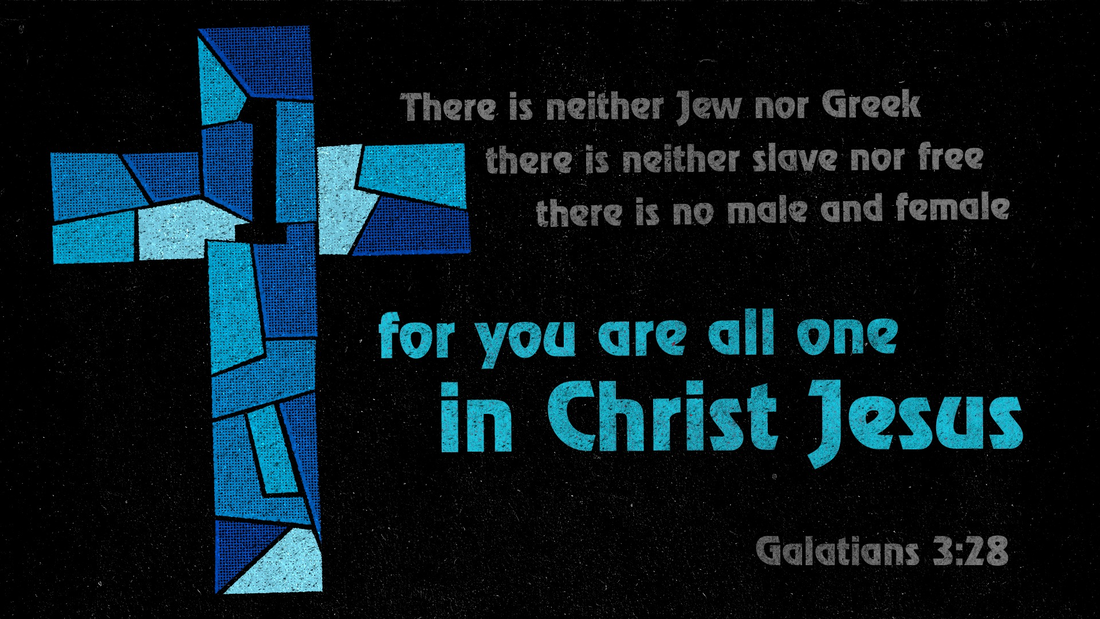
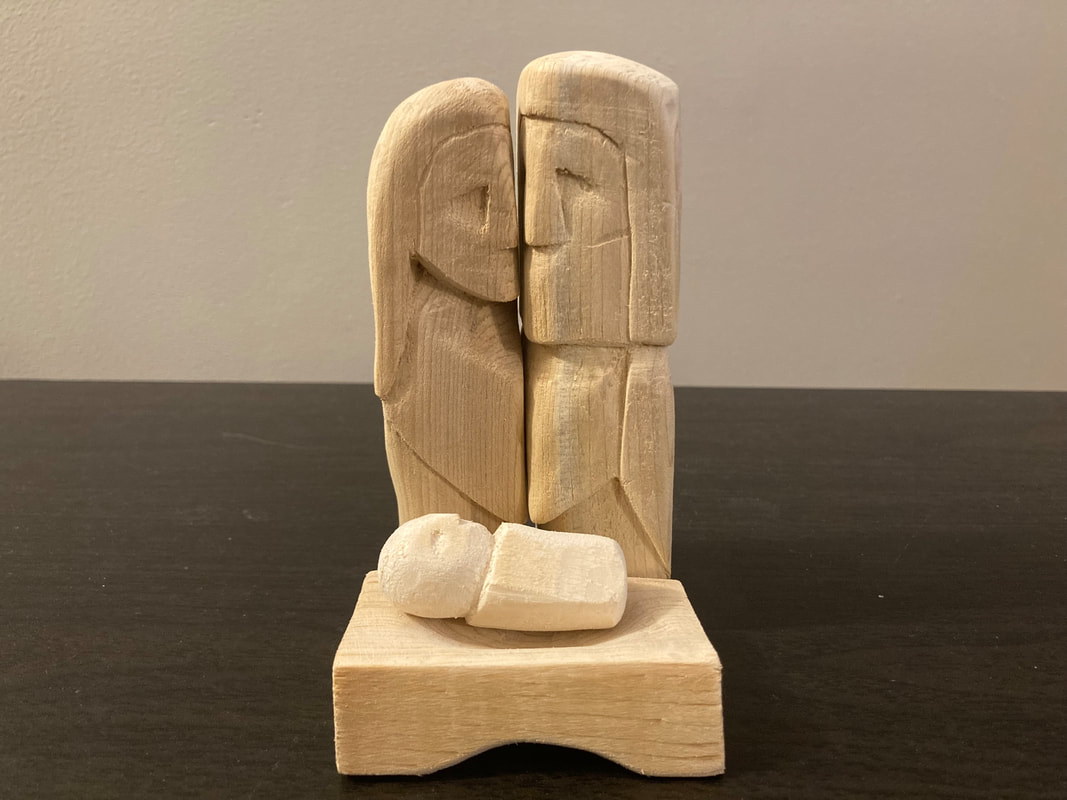
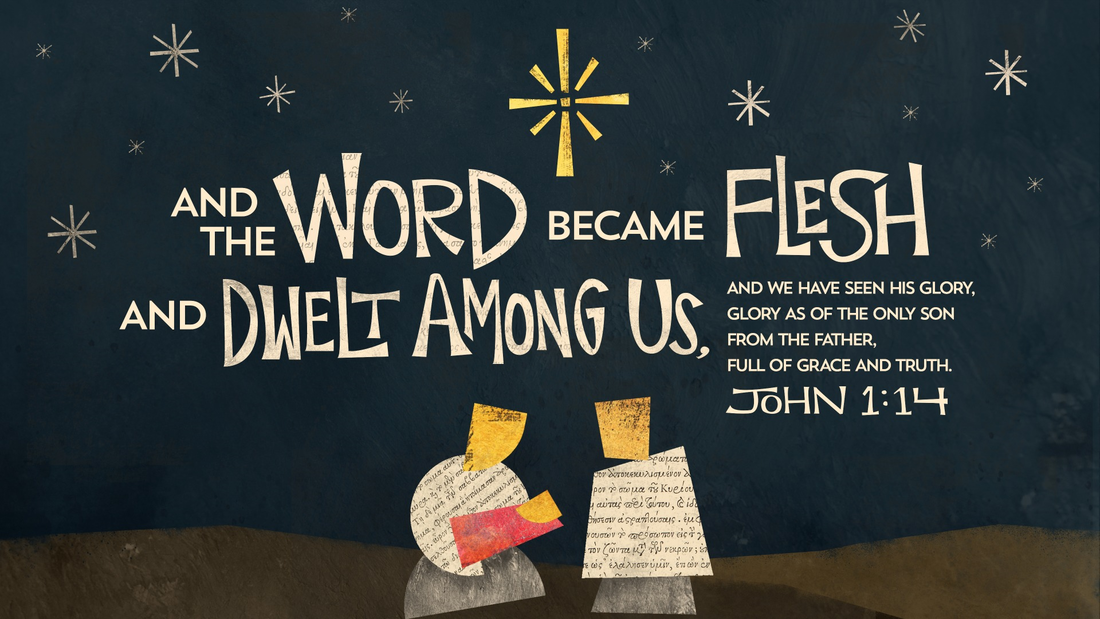
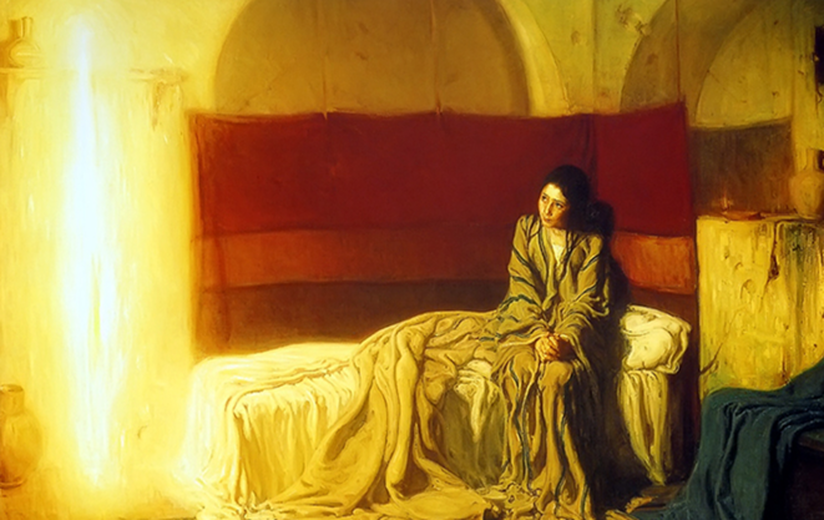
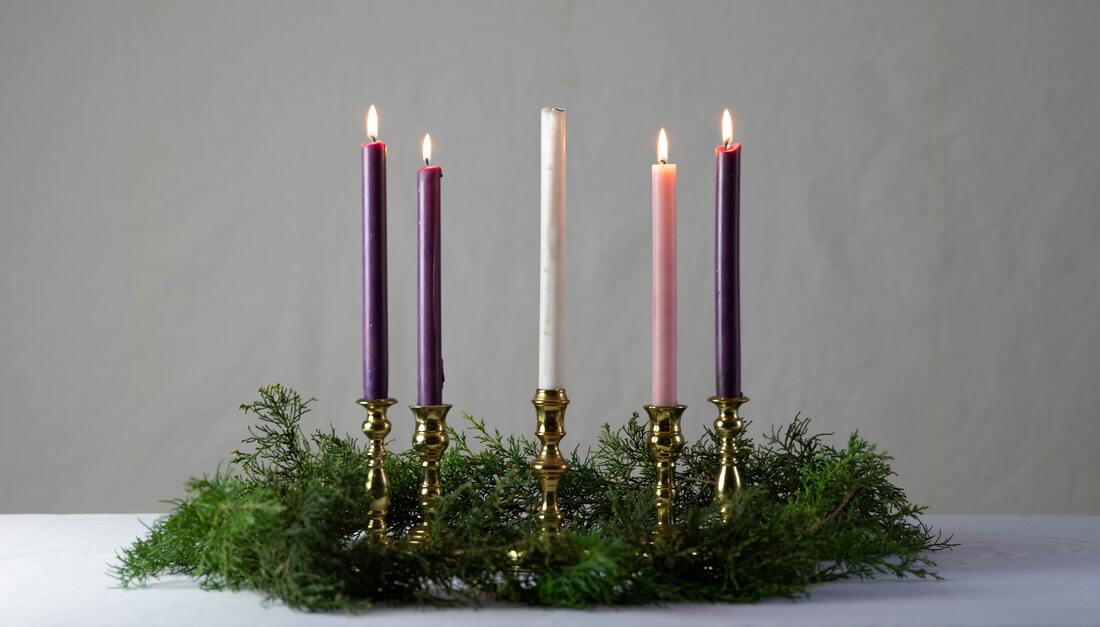
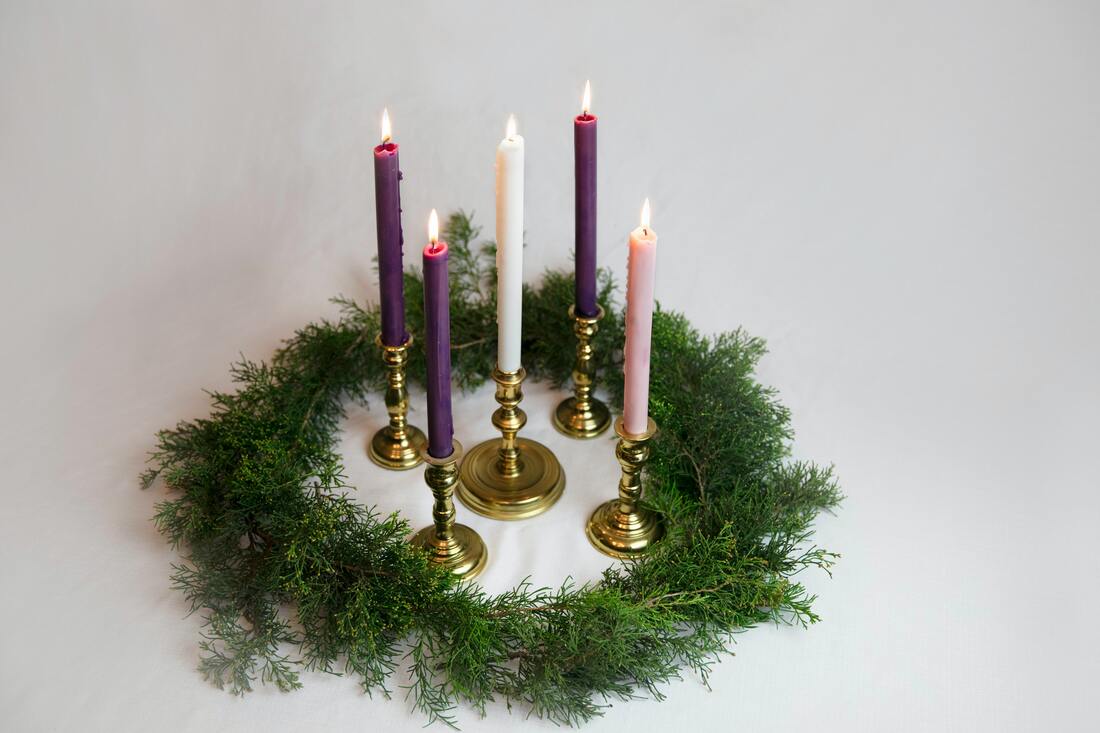
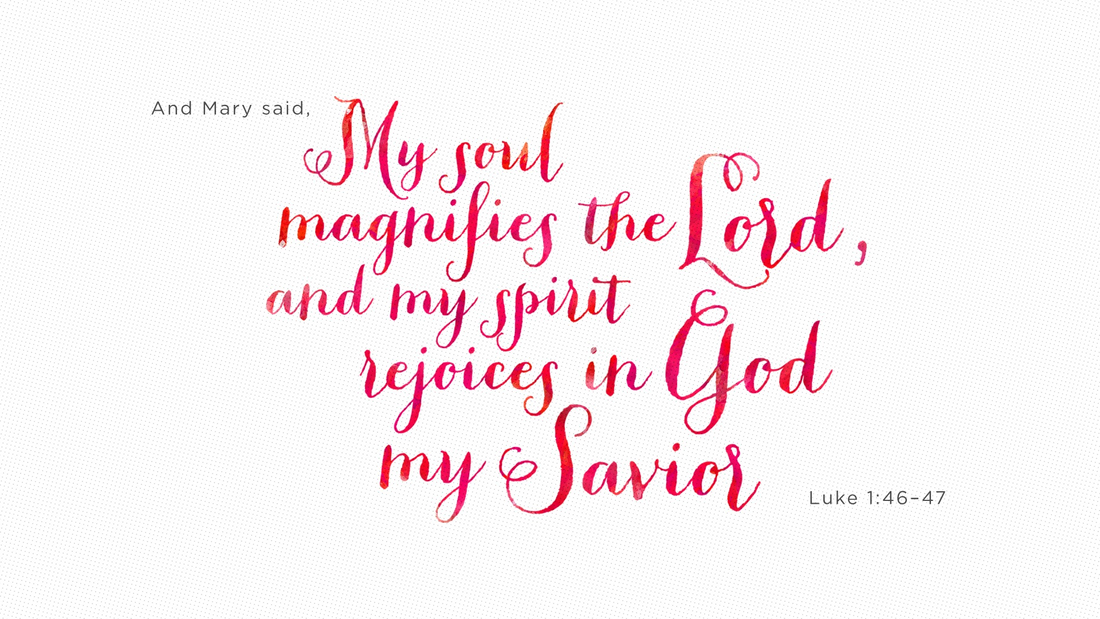
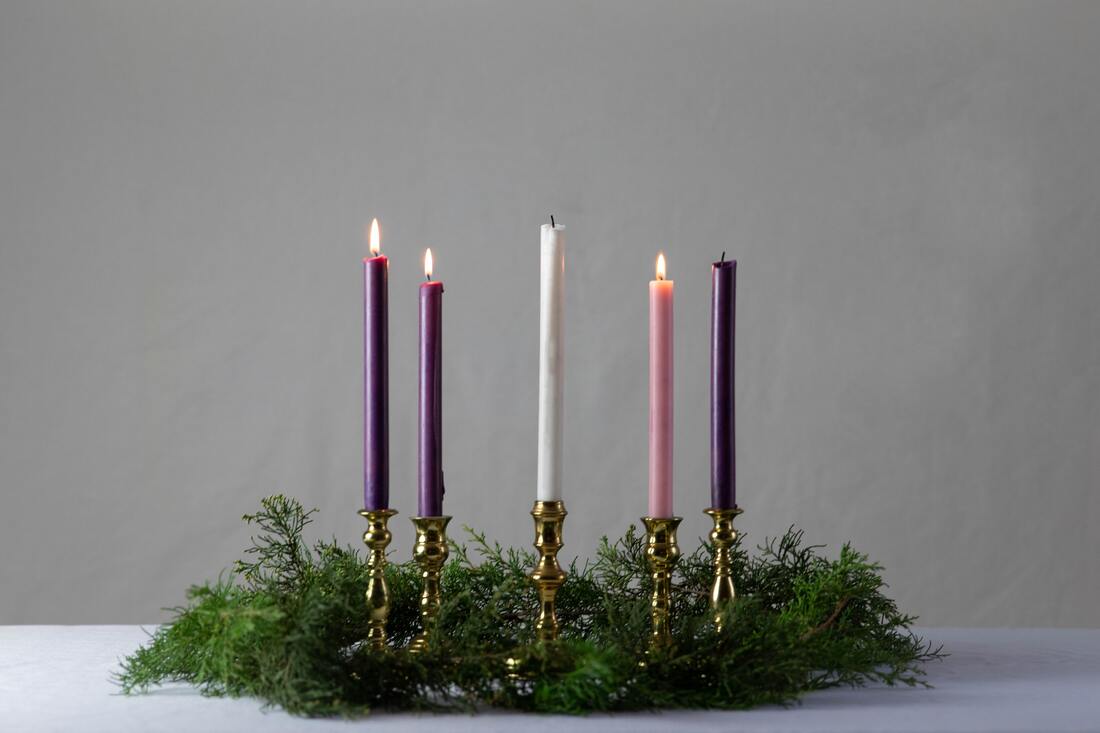
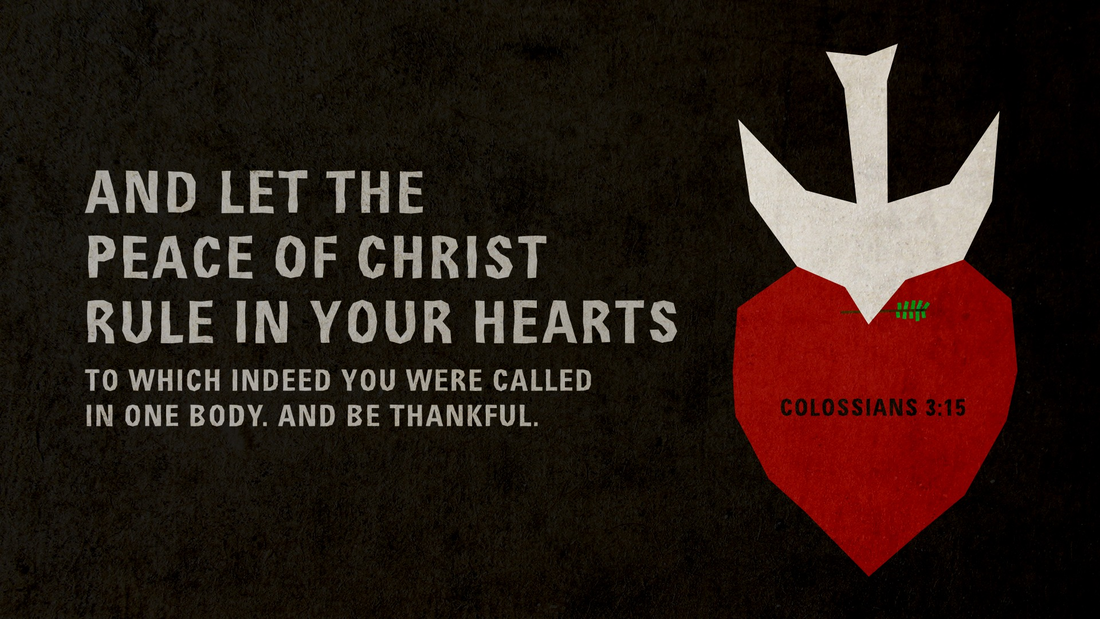
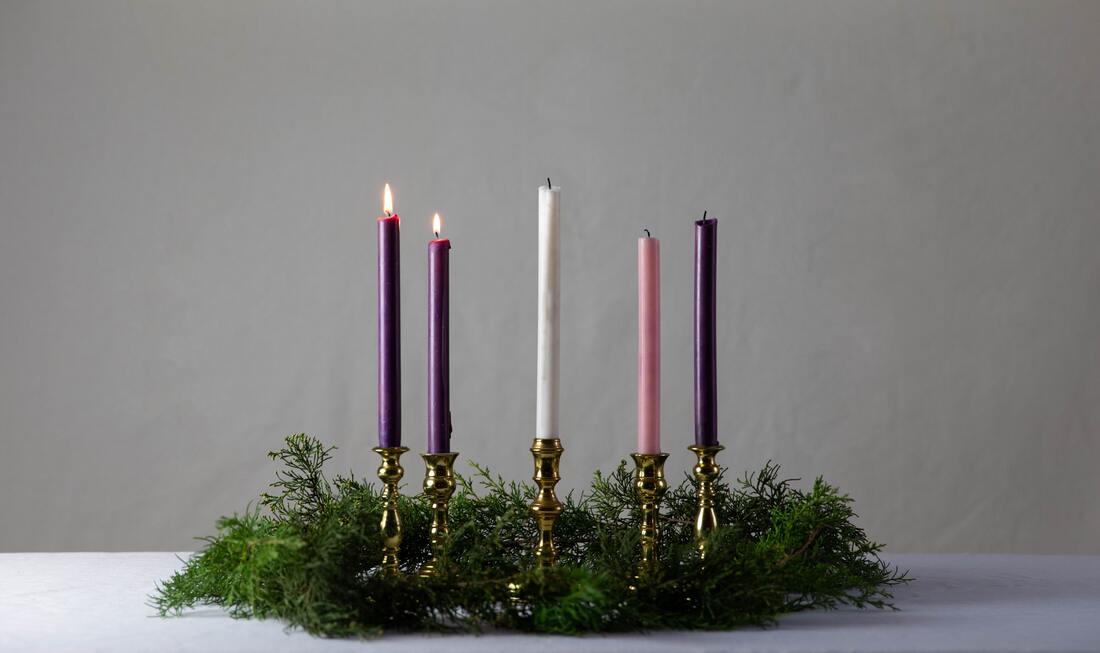

 RSS Feed
RSS Feed
